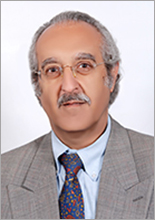Arab Capital Markets: Fixed Income Markets in the GCC – Part IV
Part IV of this six-part series examines fixed income markets in the more developed Gulf Cooperation Council (GCC) countries’ markets of the Arab World. This section considers unique features of GCC issues, sukuks, as well as the major players in GCC fixed-income markets and recent growth trends.
Fixed-income paper is issued by central banks, governments, corporations, and other entities to raise resources from the market. They are generally debt obligations of the issuer according to various maturities and with predetermined terms of remuneration. They can take a wide variety of forms; that is, they structure in various ways the flow of payments between the issuer and the holder of the paper. Notably, they may have a fixed coupon or variable rates; they may be backed by real assets or other securities; or they may be convertible into shares. Maturities range from days to 30 years, for example.
A unique feature of GCC fixed income markets is the significant issuance of Sukuks. Sukuks are Sharia-compliant issues that combine features of conventional bills or bonds and equity shares. Compliance of a Sukuk with Sharia entails that the Sukuk certificate holder is a co-owner of a share of the assets underlying the Sukuk.
Fixed-income securities may be listed and traded on exchanges. Well-developed government securities markets provide (a) a benchmark yield curve for pricing and developing private instruments, and (b) the institutional infrastructure for capital markets. Short-term paper facilitates systemic liquidity management and the conduct of monetary policy.
Fixed-income securities markets are more developed in the GCC area than in the rest of the Arab countries. As of June 30, 2013, total outstanding GCC Bonds and Sukuk was US$239.8 billion (Markaz 2013a). United Arab Emirates entities issued the largest share, with 50.4 percent of the total amount outstanding. Corporations, including financial institutions, dominate the market with 72.2 percent of the total amount outstanding. The U.S. dollar and the Saudi riyal are the preferred denominations of issues, with 73.3 percent and 11.4 percent, respectively, of the total amount outstanding. Conventional bonds continue to dominate, with 69.4 percent of the total amount outstanding (Markaz 2013b).
The Central Bank of Kuwait is the leading issuer of conventional Central Bank local-currency-denominated paper. The Central Banks of Bahrain and Qatar remain the only issuers of central bank Sukuks. Most of these central bank issues have maturities of around one year and are used for systemic liquidity management.
GCC-country debt issues remain concentrated in a few markets, including Qatar, Saudi Arabia, and the United Arab Emirates, and have an average maturity of slightly less than six years. The United Arab Emirates continues to be the largest borrower, with public, financial, and nonfinancial sector issuers (NBK 2013). Financial services and real estate dominate the sector composition of GCC-country conventional debt and Sukuk corporate issues, accounting for more than half of the outstanding amount, followed by the oil and gas sector and utilities (Rocha et al. 2011).
Over 10 years, the value of annual issues has more than quadrupled from less than US$20 billion in 2003 to more than US$85 billion in 2012. With issues reaching of US$45.5 billion in the first six months of 2013, a total exceeding US$90 billion for the whole year can be expected. In the wake of the 2007–08 financial crises, the number of issues had halved in 2008 from their 2007 value, but they quickly more than recovered afterward.
Part V of this series examines a few examples of, and challenges to, underdeveloped fixed-income markets across the rest of the Arab world.
Read Part I, Part II, Part III, Part V, Part VI
Wafik Grais is an International Senior Adviser specializing in Islamic finance, financial regulation, investment financing, private equity management, and corporate governance with expertise in SMEs and green growth financing. He was co-founder and chairman of Viveris Mashrek, a Cairo-based, financial advisory services company specialized in private equity investments in SMEs, licensed by Egypt's Financial Supervisory Authority. He spent 28 years in international finance notably with the World Bank in Washington DC where he held several senior positions both in operations and at corporate levels. He holds a Ph.D. in Economics.
